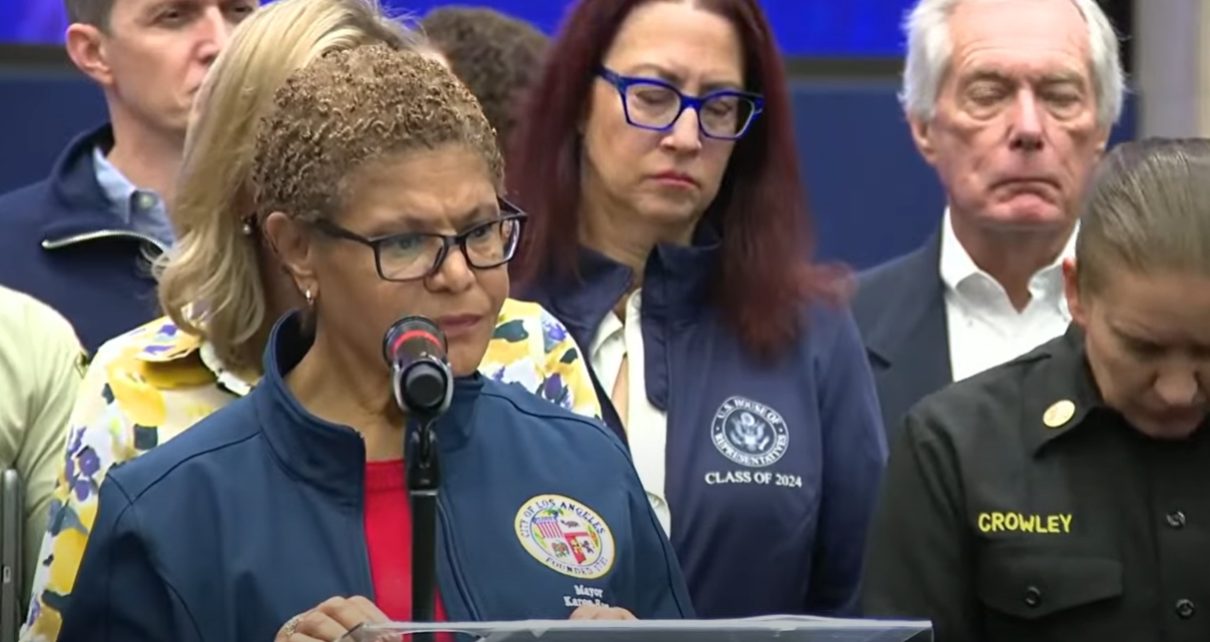Los Angeles city departments have been instructed to prepare for sweeping budget reductions that could lead to mass layoffs and the elimination of core services next year, according to internal emails and budget templates distributed by the Mayor’s Office and the City Administrative Officer.
Departments were told to conduct a “budget reduction exercise” for the 2026–27 fiscal year, something not required in the last cycle. The spreadsheets show specific targets for each department, with cuts ranging from hundreds of thousands to tens of millions of dollars. The Los Angeles Fire Department, for example, has been asked to identify $44.8 million in reductions just months after the region’s devastating wildfires, roughly the same size as its projected deficit from recent firefighter pay raises.
City employees warn that Los Angeles is already stretched to the breaking point. Over the past three years, most departments have faced hiring freezes, service slowdowns, and deferrals of basic maintenance. Many now operate with skeleton staffing, limited equipment, and shrinking flexibility. Asking them to trim a little more inevitably means cutting frontline programs or critical safety positions. Deferred repairs to aging infrastructure, vehicles, and technology systems have also created hidden liabilities that will make future costs higher.
The budget memo distributed across departments lays out the broader picture: Los Angeles’s structural revenue problems are compounding. Optimistic revenue forecasts and the use of one-time funds have masked long-term gaps. When state or federal dollars are delayed, such as during government shutdowns, local programs that depend on them are forced to scale back or halt altogether.
At the same time, the demand for city safety-net programs is rising. Soaring housing costs, inflation, and instability in federal programs like SNAP and Medicaid have pushed more residents into need, straining already depleted agencies that distribute food, rental aid, and emergency relief. Cuts to those programs would hit hardest in immigrant and working-class communities.
The internal analysis warns that reductions to “equity-oriented” departments such as Youth Development, Community Investment for Families, and Economic and Workforce Development carry disproportionate risks. These are not extras, but preventive investments that reduce homelessness, unemployment, and long-term enforcement costs. Slashing them may balance spreadsheets temporarily but increases social and economic costs later.
City employees fear that these cuts could spiral into a self-defeating cycle: worse service, declining public trust, weaker revenue, and further contraction. As maintenance is deferred and positions vanish, neighborhoods experience slower responses and deteriorating conditions, eroding confidence in city government.
Compounding the crisis is the city’s commitment to fund and host mega-events like the 2026 World Cup and 2028 Olympics, which are already shaping budget priorities. The Olympics, officially designated a National Special Security Event, grants sweeping authority to federal agencies such as DHS, ICE, and the Secret Service. As NOlympics LA has reported, the designation was made four years earlier than usual, giving federal law enforcement an extended foothold in Los Angeles.
That decision has raised alarm among immigrant-rights and civil-liberties groups, who warn that an expanded federal security presence could erode the city’s sanctuary protections and intensify surveillance in Latino and immigrant neighborhoods near Olympic venues. The same report points out that the Games will divert billions toward security and infrastructure while basic city services like street repair, sanitation, housing, and human services are underfunded.
City staff involved in the budget process say the contradiction is impossible to ignore. Departments that help families, seniors, and youth are being told to shrink, even as Los Angeles commits to hosting events that will require vast new spending on law enforcement and logistics.

